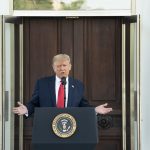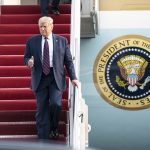The Trump administration is back in the spotlight, and this time it involves a showdown at the Supreme Court that’s more dramatic than your average soap opera. An emergency application has been filed by none other than President Donald Trump, who wants to remove the head of the Office of Special Counsel, Hampton Dellinger—a Biden appointee tasked with protecting whistleblowers. The catch? A lower court just ordered Dellinger back into the saddle after Trump gave him the boot, leading to yet another legal tussle that raises eyebrows and blood pressure among conservative Americans.
Dellinger, who filed suit shortly after being ousted, claims he has a right to be in charge. But many in the Trump camp see this as nothing short of judicial overreach. Acting Solicitor General Sarah Harris pointed out that this situation tests the limits of the separation of powers. Courts stepping in to dictate who gets to run federal agencies? That sounds more like a liberal playbook than a Constitutional principle. Harris argued that allowing this continued intervention not only hampers the President’s executive power but also sets a dangerous precedent that no one signed up for in the Constitution.
Trump Admin Brings First Major Appeal to Supreme Court.https://t.co/Phgf68lQm7
— 🇺🇸 The MAGA Train 🇺🇸 Kenneth F Crowe (@KennethFCrowe1) February 18, 2025
The D.C. Circuit Court of Appeals quickly shot down Trump’s bid to block the reinstatement. The 2-1 decision rolled out the red carpet for the notion that such orders are not typically up for appeal. So, instead of focusing on the real issues at hand, the courts have chosen to act like a hall monitor, forcing Trump to play by the rules laid down by his opponents. In the petition to the Supreme Court, Trump’s legal team is pleading for an end to judicial practices that infringe upon presidential prerogative, demanding clarity on why courts should seize powers meant for the Executive branch.
It isn’t just Dellinger that has been at the center of legal battles; several other Trump initiatives have been met with temporary restraining orders that stifle executive action. From freezing funding to enforcing restrictions on hospitals that conduct child sex-changes, there’s a pattern of the judicial system stretching its limbs into executive affairs. Trump’s administration has labeled these moves as judicial overreach, criticizing them for denying legitimate executive actions that the President has every right to implement.
The crux of the issue lies in the belief that the President shouldn’t have to tiptoe around the courts to assert his authority. Harris noted that the founders of America never envisioned a future where a district court could dictate terms for executive action. Conservatives across the nation are keeping a keen eye on whether the Supreme Court will uphold the true meaning of the Constitution or let rogue judges run amok. One has to wonder what would happen if Dellinger had served under President Trump; would he still be as zealous about whistleblower protection, or would he be resigned to a less tolerant regime in a different political landscape? The stakes have never been higher, and the ensuing drama promises to thrill anyone who’s been watching this saga unfold.




